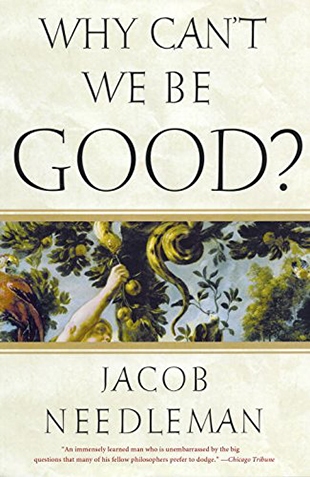Jacob Needleman is professor of philosophy at San Francisco State University and author of many books including The American Soul, where he presented an in-depth appreciation of American history and the far-reaching values of perennial wisdom. It encouraged us as citizens to join in an important task for our time — to bring to life the spiritual underpinnings of the republic.
In his latest, Needleman as a religious scholar tackles a major dilemma facing twenty-first century people: we know what is good and yet fail to do it. But now more than ever before, we have access to the ethical, moral, and religious resources of all the wisdom traditions to guide us in our choices.
Needleman as a philosopher knows that the contents of our minds — our ideas about history, language, the body, war and peace, time and space — all have an impact on our will to do good. There is something else to consider as well: the overwhelming evil in the world brought about by the human propensity for power, greed, selfishness, depravity, and other dark impulses.
Needleman the teacher and ethical explorer takes us on a jaunt that includes a college classroom assessment of goodness in an era when relativism and fundamentalism clash; the psychological experiment of Stanley Milgram at Yale University that showed the capacity we all have to inflict pain on others when obeying orders; the edifying stories and spiritual insights from Rabbinic Judaism, mystical Christianity, and esoteric schools on the dual human nature of good and evil; and the words of Socrates who modeled thinking together as a work of love.
In his complex consideration of why we often violate our most cherished values and beliefs, Needleman plunges us into heady material on the moral power of listening, the journey between wonder and despair, the ethics of attention, the meaning of silence, and the seed and the fruit of all that is good. In the end, he salutes the freedom we have to love and to act justly toward other human beings and the good earth.
